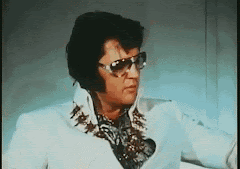Choosing a prom king instead of a president: The power of the politically unconscious
I know a man who has long held generally conservative values but told me the other day that he was voting for Biden because he didn’t like “the way Trump spoke.” He didn’t like his oratory skills, his face, or his presentation. Yet, over the last 4 years he had boasted about how much money he’d made since Trump took office and took hold of the economy.
Confused, I enumerated some of the things the President had accomplished in office—expanding protected wilderness and making animal abuse a federal crime, not to mention changing the laws to protect African Americans from wrongful imprisonment—and he approved of every policy. So, did he support late term abortion? No. Did he support pervasive entitlements? No.
Did he support subservient trade policies? No. Did he support Obama’s Iran deal? No.
She’s right. And this is not an isolated case. In fact, I’ve been seeing it more and more, which prompts the obvious question: What the hell is going on? One neighbor, who is similarly against abortion for “herself,” as she put it, was willing to vote to support abortion for someone else. Morality was relative, she said. Who was she to tell someone she couldn’t kill her baby?
This thorough abandonment of reason is a true phenomenon. The only way I can understand it is that its drive train is also thoroughly unconscious.
Seeing it that way begins to answer the question that has had me frustrated for years: Why do people who run away from California or New York, run to Montana or Arizona, and then vote for the exact same policies that made their lives unlivable where they came from?
Now I know why: They can’t help it. They are not voting for or against policies. They’re voting on emotions and preferences. They themselves don’t even know why. My otherwise congenial and affable acquaintance wasn’t able to articulate what about Trump’s persona was so anathema to him. “He just grates on me.” For this reason, engaging them with intellectual or rational debate is so often not effective. They just console themselves by seeing themselves as the good guys fighting for the underdogs, willing to sacrifice the profit they enjoyed from a stable and productive economy for their emotional righteousness.
But what about when the underdogs do it to themselves?
Consider the thousands of Muslim refugees clamoring for passage to western countries, protesting and rioting for their “rights,” and then somehow, for some incomprehensible reason, setting up No-Go Zones (e.g., London, Brooklyn) in which Sharia law predominates. Incomprehensible. Yet, there it is. They are desperate to get away from the rotten fruits of totalitarian, terrorist states, then as soon as they find sanctuary, set up the exact same social structure.
Is it a function of media manipulation alone?
How does someone who protests for “pro-choice” and the right to kill babies not flinch about mandatory vaccination and governmental interference in medical decisions? Is it not still my body? My prerogative? My right?
Are we in Wonderland? Has the country gone mad?
Sound familiar?
The current progressive platform is one which has no moral center and the election is a matter of popularity not policy. For perhaps precisely that reason, it has a great resonance with millennial voters. Instead of policy, social and economic issues, and values, its center is “I like” and “I don’t like.” They are voting for a prom king, not a president.
Perhaps this is all why engaging a modern-day fundamentalist democratic socialist in meaningful, rational debate has been so terribly difficult (if not impossible): Reasonable debate introduces a moral anxiety they don’t want to feel and will do just about anything to avoid.
(bold added by EWS)
***************************




























No comments:
Post a Comment